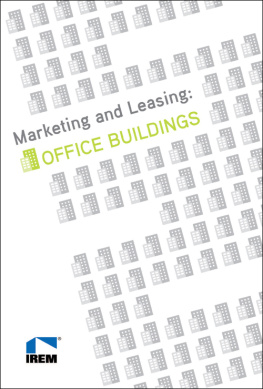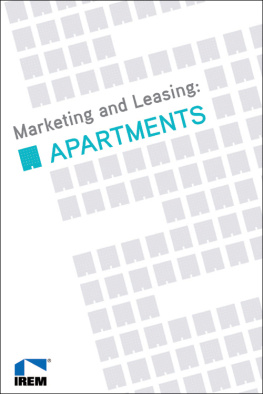Managing the Economics of Owning, Leasing and Contracting Out Information Services
First published 1993 by Ashgate Publishing
Reissued 2018 by Routledge
2 Park Square, Milton Park, Abingdon, Oxon OX14 4RN
711 Third Avenue, New York, NY 10017, USA
Routledge is an imprint of the Taylor & Francis Group, an informa business
Copyright Anne Woodsworth and James E Williams II, 1993
All rights reserved. No part of this book may be reprinted or reproduced or utilised in any form or by any electronic, mechanical, or other means, now known or hereafter invented, including photocopying and recording, or in any information storage or retrieval system, without permission in writing from the publishers.
Notice:
Product or corporate names maybe trademarks or registered trademarks, and are used only for identification and explanation without intent to infringe.
Publisher s Note
The publisher has gone to great lengths to ensure the quality of this reprint but points out that some imperfections in the original copies may be apparent.
Disclaimer
The publisher has made every effort to trace copyright holders and welcomes correspondence from those they have been unable to contact.
A Library of Congress record exists under LC control number : 93110856
Typeset in 11 point Melior by Photoprint, Torquay, Devon
ISBN 13: 978-1-138-32871-6 (hbk)
ISBN 13: 978-0-429-44846-1 (ebk)
Computing, information systems, and libraries are mysterious and marginal operations to most executives.
Mysterious in the sense that the fields mask their functions in jargon understood only by the initiated the information scientists, chief information officers, librarians, or information resources managers; and
Marginal because libraries and information systems are part of operating overhead and not easily linked directly to profit-margins or organizational missions.
In the 1980s there was almost blind acceptance that information systems (IS) and information technology (IT) could give organizations a competitive edge. Now, information systems and services are viewed with a more jaundiced eye. They are still important, but are no longer seen as the panacea for falling profit lines or declining budget support (in the not-for-profit sector). Since technology has now permeated all aspects of business, manufacturing and service industries, executives are seeking ways to make more effective use of their investments and, of course, to spend less on information systems and related technologies if at all possible. Many organizations, including public institutions, are outsourcing computing services and other operations that do not involve their direct mission.
Operations like information resources and information technologies are thus a source of concern to executives, since a return on investments in IS and IT is not easy to see.
In the past, libraries have been conceptualized as being repositories of books, journals, technical reports, and other semipermanently held materials, mostly in paper form. Computing systems were seen as lending support to the operational infrastructure of plants, businesses, and organizations. As the technologies improved during the 1970s and 1980s, information previously disseminated in paper form became available through electronic media. Computing and telecommunication systems broadened their functions to include rapid transmission of information and data. Computing systems and library information systems have now come to the point where they are heavily interdependent, if not functioning as one unit.
In recent years, executives have begun to outsource computing and telecommunications functions primarily to control costs. Traditional libraries and information centers have been disbanded in favor of service contracts or outright leasing of staff. Both the private and public sector are examining their information service operations from the point of view of cost-effectiveness. Decisions about owning versus leasing of information are being made daily. Decision-makers are finding that they must deal differently with funding and budgeting of information systems and libraries than they have in the past.
New paradigms for these service functions already exist. Not only have corporations and governments begun to contract out entire information service operations, but libraries themselves have begun to consider the costs, effectiveness, and implications of outsourcing some of their operations and services.
It has been accepted that service organizations differ from those with a profit motive. Even within the public service sector itself, the operations of service-like units that are merely supportive of the main mission of the organization are sometimes hard to understand. If understood, they are hard to break apart and analyze rationally from the point of view of having them make financial sense.
Thus, a tightening economy and technological trends have combined to raise anew some basic questions about leasing, contracting out, and/or outsourcing of information services. How, for example, should organizations define their core information services? How can costs be controlled? Should we buy and keep information or should we contract for it as needed? Is there any value added when an information broker provides a service? Is it feasible to contract out a whole library operation as is done frequently with networks and computing services?
Our book provides a framework for decision-makers to view and review information services within their organizations. Entire units, components of libraries and information centers are defined and untangled so that the widest variety of organizations can analyze their own environments. While we have tried to minimize the use of library and computing jargon, a short glossary at the end of the work explains terms for which there is not a simple English language substitute. Each base chapter is accompanied by comments from a broad range of experts in the information field. Their comments enhance and enrich the perspectives in our book.
The first two chapters break apart and explain how information services and systems function within an organization and how this kind of work can be handled in-house or contracted out. The next two chapters describe the complexities of the information world that is to say, the information resources and the technologies themselves. In each of these chapters, realistic advice is provided on issues such as cost-benefit analysis, the pros and cons of outsourcing, and other issues such as ownership versus pay-as-you-go procurement.
With collaborative ventures providing more opportunities for sharing of systems, services and resources, a chapter is devoted to the issues, problems and benefits of cooperative use of information systems and services. Then, prior to a review of future trends, there is a chapter devoted to fiscal issues costing, pricing, internal charge-backs, and the dilemma of how to get hard information about soft services.











